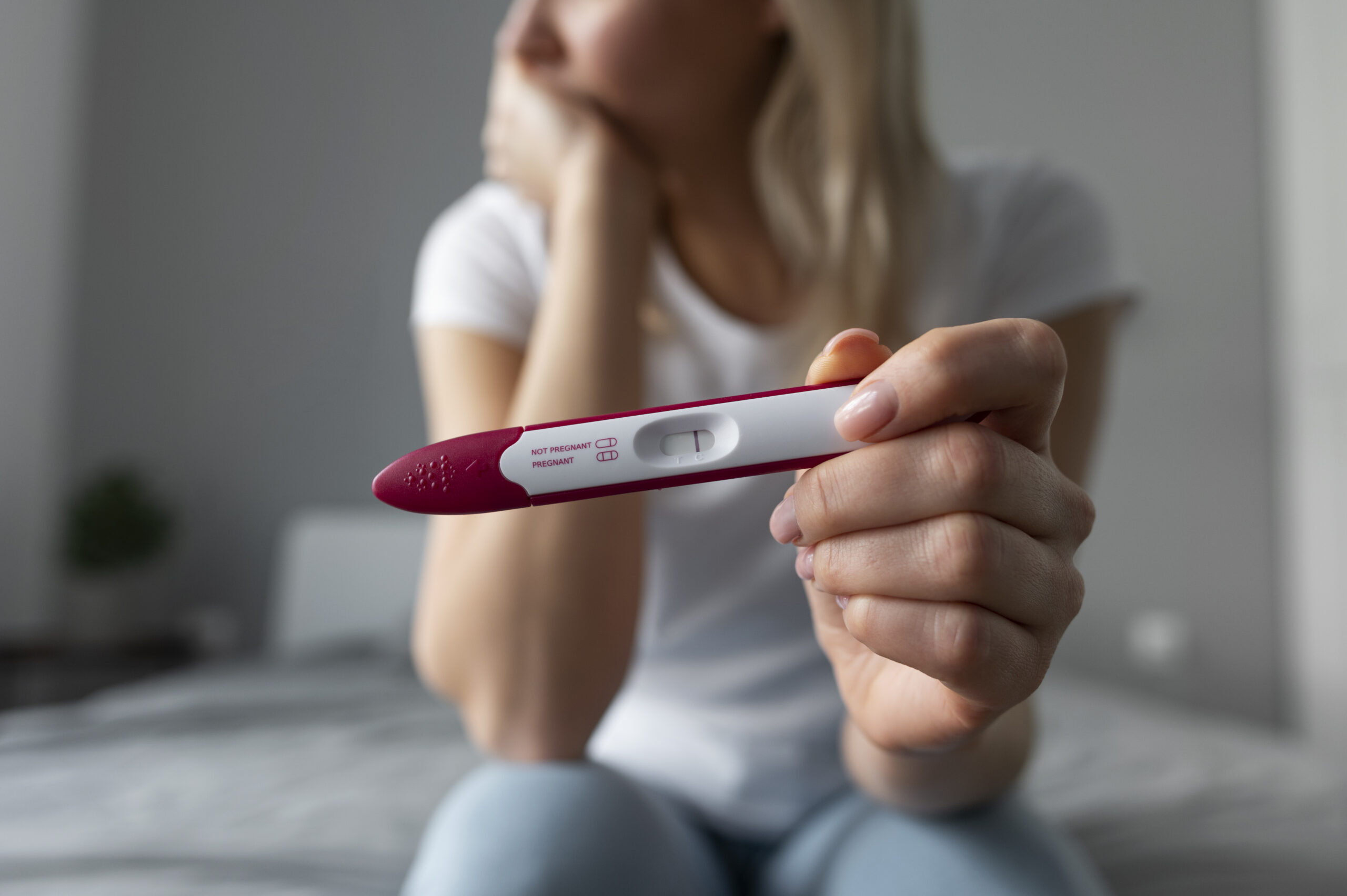Learn the best time to take a pregnancy test for accurate results. Discover tips on early detection, the role of hCG, and what affects test accuracy.
A pregnancy test is one of the quickest ways to find out if you’re expecting. Most home pregnancy tests work by detecting a hormone called human chorionic gonadotropin (hCG) in your urine, which your body starts producing after a fertilized egg attaches to the lining of your uterus. However, getting accurate results depends on timing and proper test usage.
Knowing when to take a pregnancy test can help avoid unnecessary confusion or frustration, especially when dealing with early pregnancy symptoms like fatigue, nausea, or a missed period. So, how do you determine the right time?
How Pregnancy Tests Work
Before diving into the best time to take a pregnancy test, let’s understand how they work. Pregnancy tests detect the presence of the hCG hormone, which starts to increase after implantation. While hCG can be detected in your blood as early as 11 days after conception, it can take longer for it to be detected in urine, which is why timing is critical for accurate test results.
When to Take a Pregnancy Test: The Ideal Timing

1. Wait Until After Your Missed Period
The most reliable time to take a pregnancy test is after your period is late. By this time, hCG levels are typically high enough to be detected by home pregnancy tests. If you test too early, especially before a missed period, the test may not detect the hormone, leading to a false negative.
- Why wait? Your body needs time to produce hCG, and levels double every two to three days in early pregnancy. Waiting for a missed period ensures that hCG has had time to build up to detectable levels in your urine.
2. Early Testing: Can You Test Before a Missed Period?
Some pregnancy tests advertise that they can detect pregnancy up to six days before your missed period. However, early testing comes with a risk of inaccurate results, particularly false negatives. If you test early and get a negative result, it’s best to retest after your period is late to confirm.
- Early Detection Tests: These tests are more sensitive to hCG, but the accuracy improves the closer you get to your missed period.
3. Best Time of Day to Test
The concentration of hCG is highest in the morning, particularly if you haven’t urinated during the night. Therefore, testing with your first-morning urine can improve the accuracy of early detection. If you take the test later in the day, dilute urine might lower the concentration of hCG, leading to a potential false negative.
What Affects the Accuracy of a Pregnancy Test?
Several factors can impact the accuracy of a home pregnancy test, which is why understanding the nuances can help you avoid incorrect results.
1. Testing Too Early
Testing before hCG levels are high enough can lead to a false negative. Even if you’re pregnant, testing too soon after conception may not give the test enough time to detect hCG in your urine.
2. Using Diluted Urine
If you drink large amounts of water or other fluids before taking the test, the concentration of hCG in your urine may decrease, which can also lead to a false negative. Testing first thing in the morning or after holding your urine for several hours can provide more accurate results.
3. Expired or Faulty Tests
Check the expiration date on your pregnancy test before using it. An expired test may not work properly, leading to unreliable results. Additionally, faulty tests or those that have been improperly stored can also give false negatives or positives.
4. Medications That Affect Test Results
Certain medications, particularly those that contain hCG (often used in fertility treatments), can cause a false positive. Other medications, like antibiotics or birth control, typically do not affect the accuracy of a pregnancy test. If you’re unsure, consult with your healthcare provider about any medications you’re taking.
What to Do if You Get a Negative Test but Still Suspect Pregnancy
It’s possible to get a negative pregnancy test even if you are pregnant. This is usually due to testing too early or using a test incorrectly. Here’s what to do if you still think you might be pregnant:
1. Retest After a Few Days
If your period still hasn’t started, wait a few days and test again. By then, hCG levels will have increased, which can give you a more accurate result.
2. Consult a Doctor for a Blood Test
If home pregnancy tests continue to show negative results, but you’re experiencing pregnancy symptoms or still haven’t gotten your period, consult a healthcare provider. A blood test can detect lower levels of hCG and confirm whether you’re pregnant.
How to Choose the Right Pregnancy Test
With so many pregnancy tests on the market, how do you choose the right one? Here are some tips:
1. Look for Sensitivity
Pregnancy tests come with different sensitivity levels for hCG detection. Some are more sensitive than others, meaning they can detect smaller amounts of hCG in your urine and provide earlier results.
2. Check Reviews and Recommendations
Before buying a test, check for reviews and recommendations from trusted sources. Some tests are known for being more reliable than others, so it’s essential to choose a brand with a good reputation.
3. Choose a Test with Clear Results
Some pregnancy tests offer digital readouts, making it easier to understand the results. These tests usually display « Pregnant » or « Not Pregnant, » eliminating the confusion that can come with interpreting faint lines.
Frequently Asked Questions (FAQ)
Q: Can I take a pregnancy test in the evening?
Yes, but your urine is more concentrated in the morning, making it easier for the test to detect hCG. Testing in the evening may lead to less accurate results, particularly if you’ve consumed a lot of fluids throughout the day.
Q: Can stress delay my period and affect pregnancy test results?
Stress can impact your menstrual cycle and delay your period. However, it doesn’t typically affect the accuracy of a pregnancy test, unless stress is influencing how early or late you take the test.
Q: Can irregular periods affect when I should take a pregnancy test?
If your periods are irregular, it may be harder to determine the best time to test. In this case, it’s recommended to wait at least 14 days after potential conception or consult a healthcare provider for guidance.
Internal Links
For more detailed information on pregnancy symptoms, testing, and postpartum care, visit these related pages:
- Pregnancy Symptoms: Explore common symptoms experienced during early pregnancy.
- Pregnancy Testing: Understand the science behind pregnancy tests and early detection.
- Postpartum: Learn about recovery and care after childbirth.
External Links
Here are some trusted external resources for more information on pregnancy testing and accurate results:
- American Pregnancy Association: Pregnancy Tests
- Mayo Clinic: Home Pregnancy Tests
- Healthline: When to Take a Pregnancy Test
Conclusion
Knowing when to take a pregnancy test and understanding the factors that influence its accuracy can help you get reliable results. Whether you’re testing after a missed period or using early detection tests, the key to an accurate result is proper timing and following the test instructions carefully. If you’re unsure or have persistent symptoms of pregnancy, it’s always a good idea to consult with a healthcare provider.
By being patient, testing at the right time, and using reliable tests, you can navigate the journey of pregnancy with confidence and clarity.
